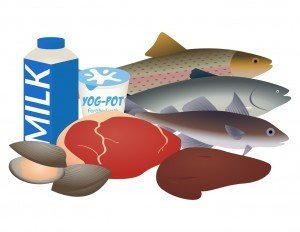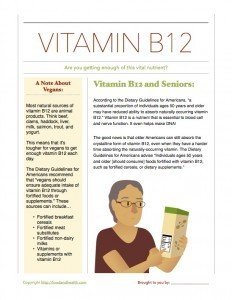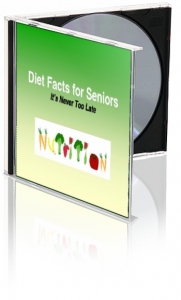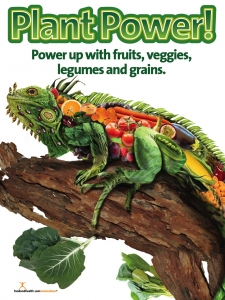Nutrients of Concern: Vitamin B12
 It's time to talk about vitamin B12. According to the Dietary Guidelines for Americans, "a substantial proportion of individuals ages 50 years and older may have reduced ability to absorb naturally occurring vitamin B12." This means that many older people are not getting enough vitamin B12, and that in turn can be bad news for health. Vitamin B12 is a nutrient that is essential to blood cell and nerve function. It even helps make DNA! The National Institutes of Health's Office of Dietary Supplements adds, "Vitamin B12 also helps prevent a type of anemia called megaloblastic anemia that makes people tired and weak."So, how can this population group get more vitamin B12?The answer is even more straightforward than usual. Since older Americans can still absorb the crystalline form of vitamin B12, even when they have a harder time absorbing the naturally-occurring variety, the Dietary Guidelines for Americans advise "Individuals ages 50 years and older [should consume] foods fortified with vitamin B12, such as fortified cereals, or dietary supplements." Most adults need 2.4 micrograms of vitamin B12 per day, so consider stocking up on fortified cereals or getting a vitamin supplement.
It's time to talk about vitamin B12. According to the Dietary Guidelines for Americans, "a substantial proportion of individuals ages 50 years and older may have reduced ability to absorb naturally occurring vitamin B12." This means that many older people are not getting enough vitamin B12, and that in turn can be bad news for health. Vitamin B12 is a nutrient that is essential to blood cell and nerve function. It even helps make DNA! The National Institutes of Health's Office of Dietary Supplements adds, "Vitamin B12 also helps prevent a type of anemia called megaloblastic anemia that makes people tired and weak."So, how can this population group get more vitamin B12?The answer is even more straightforward than usual. Since older Americans can still absorb the crystalline form of vitamin B12, even when they have a harder time absorbing the naturally-occurring variety, the Dietary Guidelines for Americans advise "Individuals ages 50 years and older [should consume] foods fortified with vitamin B12, such as fortified cereals, or dietary supplements." Most adults need 2.4 micrograms of vitamin B12 per day, so consider stocking up on fortified cereals or getting a vitamin supplement. Oh, and older Americans aren't the only ones who might not be getting enough vitamin B12.Most natural sources of vitamin B12 are animal products. Think beef, clams, haddock, liver, milk, salmon, trout, and yogurt. This means that it's tougher for vegans to get enough vitamin B12 each day as well. The Dietary Guidelines for Americans recommend that "vegans should ensure adequate intake of vitamin B12 through fortified foods or supplements."And with that, we come to the end of our nutrients of concern series. What did you think?Here's a great new PDF handout that features the most important information about vitamin B12...
Oh, and older Americans aren't the only ones who might not be getting enough vitamin B12.Most natural sources of vitamin B12 are animal products. Think beef, clams, haddock, liver, milk, salmon, trout, and yogurt. This means that it's tougher for vegans to get enough vitamin B12 each day as well. The Dietary Guidelines for Americans recommend that "vegans should ensure adequate intake of vitamin B12 through fortified foods or supplements."And with that, we come to the end of our nutrients of concern series. What did you think?Here's a great new PDF handout that features the most important information about vitamin B12... Don't miss the great resources in the Nutrition Education Store either!
Don't miss the great resources in the Nutrition Education Store either!

 We're here to help you look your very best, right now.
We're here to help you look your very best, right now.


